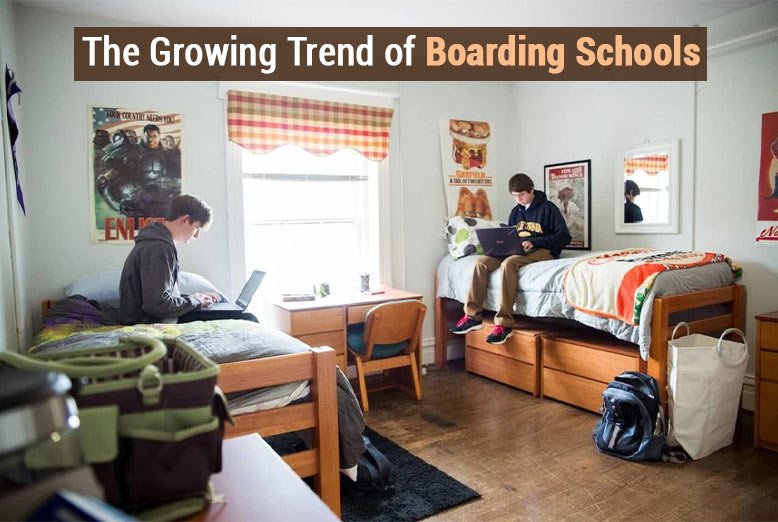In recent years, the trend of students attending boarding schools has gained significant traction among families seeking specialized education options. With their unique blend of academic rigor, extracurricular opportunities, and community living, boarding schools have become an appealing choice for many families. The Best Swiss Boarding Schools are especially renowned for combining world-class academics with scenic environments and a multicultural atmosphere, making them a top consideration for internationally minded parents. However, as parents weigh the advantages and potential drawbacks, it is crucial to consider how boarding school education impacts student development.
Academic Rigor and Excellence
Boarding schools often emphasize academic excellence, providing students with a structured environment that fosters discipline and focus. The curriculum is typically designed to challenge students, pushing them to excel in their studies. With smaller class sizes, boarding schools can offer personalized attention, allowing educators to tailor their teaching methods to meet the unique learning styles of each student. This individualized approach can lead to a deeper understanding of the material and greater academic achievement.
Moreover, many boarding schools offer advanced placement courses, college preparatory programs, and specialized subjects that may not be available in traditional day schools. This exposure to a rigorous academic environment can prepare students for the demands of higher education and enhance their college applications. Families considering boarding schools should assess the academic programs offered and how they align with their child’s strengths and interests.
Social Development and Interpersonal Skills
Beyond academics, attending a boarding school can significantly impact a student’s social development. Living in a communal environment fosters opportunities for students to build strong relationships with peers from diverse backgrounds. This exposure to different cultures, perspectives, and ideas can enhance a student’s social skills and emotional intelligence, which are essential for success in both personal and professional spheres.
Boarding schools often promote a sense of community through shared experiences, such as team sports, clubs, and group projects. These experiences teach students valuable life skills, such as teamwork, communication, and conflict resolution. As students navigate the complexities of living and working with others, they develop a sense of independence and self-reliance. Families should consider how the social environment of a boarding school aligns with their child’s personality and needs.
Emotional and Psychological Growth
The transition to a boarding school can be a significant emotional experience for students. For some, it may be their first time living away from home, which can lead to feelings of homesickness or anxiety. However, this experience can also promote resilience and emotional growth. Students learn to adapt to new environments, manage their feelings, and develop coping strategies for challenges they may face.
Additionally, boarding schools often provide support systems, including counseling services and mentorship programs, to help students navigate their emotional and psychological well-being. Families should investigate the mental health resources available at prospective boarding schools, as strong support systems can play a critical role in a student’s adjustment and overall well-being.
Extracurricular Opportunities and Personal Interests
One of the distinguishing features of boarding schools is their emphasis on extracurricular activities. These programs provide students with opportunities to explore their interests outside the classroom, from sports and arts to leadership and community service. Engaging in extracurricular activities can greatly enhance a student’s overall development, helping them discover and cultivate their passions.
Participation in sports can teach valuable lessons about competition, dedication, and teamwork, while involvement in the arts can foster creativity and self-expression. Additionally, leadership opportunities within clubs and organizations can help students develop confidence and a sense of responsibility. Families should consider a school’s extracurricular offerings and how they align with their child’s interests, as these activities can significantly contribute to a well-rounded education.
Preparing for Future Success
The experiences and skills gained at a boarding school can play a pivotal role in a student’s long-term success. The combination of academic rigor, social development, emotional growth, and extracurricular involvement prepares students for the challenges of college and beyond. Boarding school graduates often possess strong time management skills, self-discipline, and adaptability—qualities that are highly valued in higher education and the workforce.
Moreover, the networks formed during a student’s time at boarding school can last a lifetime. Relationships with peers, educators, and alumni can provide valuable connections and opportunities in the future. Families should reflect on the long-term benefits of attending a boarding school and how it aligns with their aspirations for their child’s future.
Making Informed Choices
Ultimately, the decision to pursue a boarding school education should be based on thorough research and consideration of a child’s unique needs and goals. Parents should engage in open discussions with their children about their interests, aspirations, and feelings regarding attending a boarding school. Visiting potential schools, speaking with current students and alumni, and understanding the school culture can provide valuable insights.
It is also essential for families to assess their child’s readiness for the boarding school experience. Factors such as maturity, independence, and adaptability can influence how well a student adjusts to the boarding environment. By carefully evaluating these aspects, families can make informed choices that best support their child’s development.
In summary, boarding schools offer a unique educational experience that can significantly impact student development. From fostering academic excellence to promoting social skills and emotional growth, the benefits of this educational path are multifaceted. By considering the various aspects of boarding school education, families can make informed choices that align with their child’s needs and aspirations, ultimately paving the way for a successful and fulfilling future.
Also Read: How Did Gaurav Munjal’s Net Worth Reach Around $1.2 Billion?







